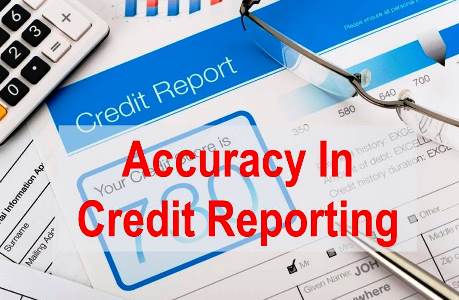As we have reported in a recent post the Attorneys general in 30 states have reached a $6 million settlement with the major credit reporting agencies Equifax, Experian and TransUnion to make changes in the way they address errors in consumer reports and how some negative information is added to credit reports. The agreement is very similar to one announced March 9 by the attorney general of New York. The Consumer Data Industry Association, which represents the bureaus, says the new settlement is just more states joining the initiative announced in New York in March.
The main changes the bureaus will be required to make as part of the settlement center around disputes — when consumers say they have found inaccuracies in their credit reports as a result of identity theft, mixed files or other errors. Some consumers have found that it is sometimes extremely difficult to get credit report errors corrected, which is why states pushed for a better dispute process.
Credit bureaus will be required to share with the data furnishers (creditors, debt collectors, etc.) the documents consumers supply in support of their dispute. Bureaus must also monitor furnishers that supply frequently disputed information.
Without admitting any wrongdoing, the credit reporting agencies agreed to make the following changes, among others:
- Each agency must notify the other credit bureaus if it finds a mixed file.
- The credit reporting agencies and data furnishers must use a more detailed system for sharing information.
- Data furnishers cannot add information about fines or tickets to credit reports.
- Credit bureaus must wait 180 days from the time medical debt is reported to add the account to a credit report, allowing consumers time to address the bill with their insurance and care provider.
- Debt collectors must provide the original creditor’s name and details of the debt before an account can appear on a credit report.
- Consumers who succeeded in disputing an item on their credit reports can get an additional free credit reports from the bureaus.
- The bureaus must also increase their efforts to educate consumers about their access to free credit reports, while also minimizing marketing of paid products to consumers trying to access free information.
According to settlement documents, the bureaus are required to complete these changes 3 years and 90 days from the effective date of the settlement.
These 30 states will receive $6 million among them to cover the investigation they launched into the credit reporting agencies in 2012: Alabama, Alaska, Arizona, Arkansas, Florida, Georgia, Hawaii, Idaho, Illinois, Indiana, Iowa, Kansas, Louisiana, Maine, Maryland, Massachusetts, Michigan, Missouri, Nebraska, Nevada, New Mexico, North Carolina, North Dakota, Ohio, Oregon, Pennsylvania, Rhode Island, Tennessee, Texas, Vermont and Wisconsin.
Consumers should regularly review their credit, because errors can cause huge problems, like credit damage and subsequent difficulty accessing credit or other services that use credit history as part of the decision to do business with a consumer.
Source: Blog.credit.com






















